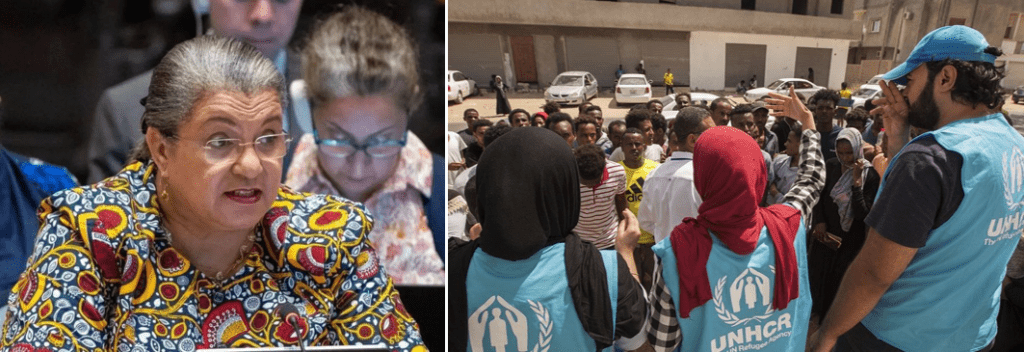UN to present a new roadmap to solve the Libya crisis in August

On June 24th, Hanna Tetteh, the United Nations Special Representative for Libya, announced that she will present a political roadmap in August to end transitional processes in Libya, despite previous attempts by the UN to install a democratically elected government in Libya consistently falling short.
According to the Middle East Monitor, Tetteh told the Security Council that the UN Support Mission in Libya (UNSMIL) “intends to present a time-bound and politically pragmatic roadmap that reflects the Libyan people’s demand for tangible change, with the goal of ending the transitional processes.”
These transitional processes began with the NATO-backed overthrow and subsequent killing of dictator Moammar Ghaddafi. The power vacuum quickly filled with multiple rival armed groups, but the dysfunctional and reportedly corrupt government in Tripoli is recognised by the UN as the official government of Libya.
The government has repeatedly failed to hold elections, and so USMIL has been extended multiple times as part of the UN’s goal of facilitating “an inclusive Libyan-led and Libyan-owned political process,” a goal which has not yet come to fruition.
A rival parliamentary government in eastern Libya is backed by Egypt and Russia, and their power and influence recognized by France, Italy and Turkey.
Coming back to this year, Maghrebi reported on May 13th an eruption of violence in Tripoli between armed groups when the commander of the influential Support Force Apparatus was killed by another group.
Tetteh warned the Security Council on June 24th that fears of renewed armed clashes once again put Libya “at a critical juncture.”
These clashes in early May disrupted the UN’s operations in Tripoli, and the UNSMIL is urging the Government of National Unity to resume full humanitarian efforts in the city.
There has been a particular focus from UNSMIL on recommencing the efforts led by international NGOs, according to the Middle East Monitor.
Tetteh also told the Security Council that she is urging “all parties to engage in good faith and to be ready to forge consensus on this roadmap.”
There have been other parties working towards the reconstruction of Libya. On June 16th, members of the Libyan Parliament’s committee met to discuss the multi-year reconstruction plan, focusing on equitable distribution of development projects and infrastructure revival.
According to Maghrebi, this reconstruction plan is a significant step for post-conflict reconstruction, inspiring hopes that it can bring stability to the country.
Outside of Libya, Tunisian lawmakers are pushing for Tunisia to have more involvement in Libyan reconstruction, specifically for the reactivation of free trade zones by reinforcing Tunisia’s diplomatic presence.
It’s clear that there is support within Libya and internationally for post-conflict reconstruction efforts, strengthening Tetteh’s plan to present a political roadmap as she states that “cohesive international support is indispensable.”
Tetteh also asked the Security Council to be ready “to take measures against those obstructing the political process, or actively instigating violence and criminality,” which would include the armed groups creating conflict zones across Libya.
“The continued inflow of weapons into Tripoli has led to the proliferation of heavy arms and weapons depots in densely populated civilian areas, posing serious risks to civilian lives,” Tetteh said.
However, she also calls for actors to avoid escalatory and unilateral actions, leaning into more diplomatic solutions by stating that “there is the urgent need for cool heads to prevail.”
The UN has only recently recognised the corruption in Tripoli’s government. On March 24th, Maghrebi reported on the UN’s condemnation of the arbitrary arrests made by the government based on political affiliation.
This was a significant deviation from the UN’s usual ardent support for the western government, and so whether the new political roadmap to be announced in August will include continued support for the government is uncertain.
Middle East Monitor/Maghrebi
Want to chase the pulse of North Africa?
Subscribe to receive our FREE weekly PDF magazine













